Whether you’re navigating a quiet lake or powering through an inlet on a busy summer day, one principle always applies: slow down near recreational fishing boats. But why should boaters slow down while passing recreational fishing boats?
It’s not just about courtesy. It’s about safety, protecting fishing gear, following maritime law, and upholding a respectful boating culture. This article will explore all the reasons why slowing down near fishing boats is essential, and how doing so reflects positively on your experience and awareness as a responsible boater.
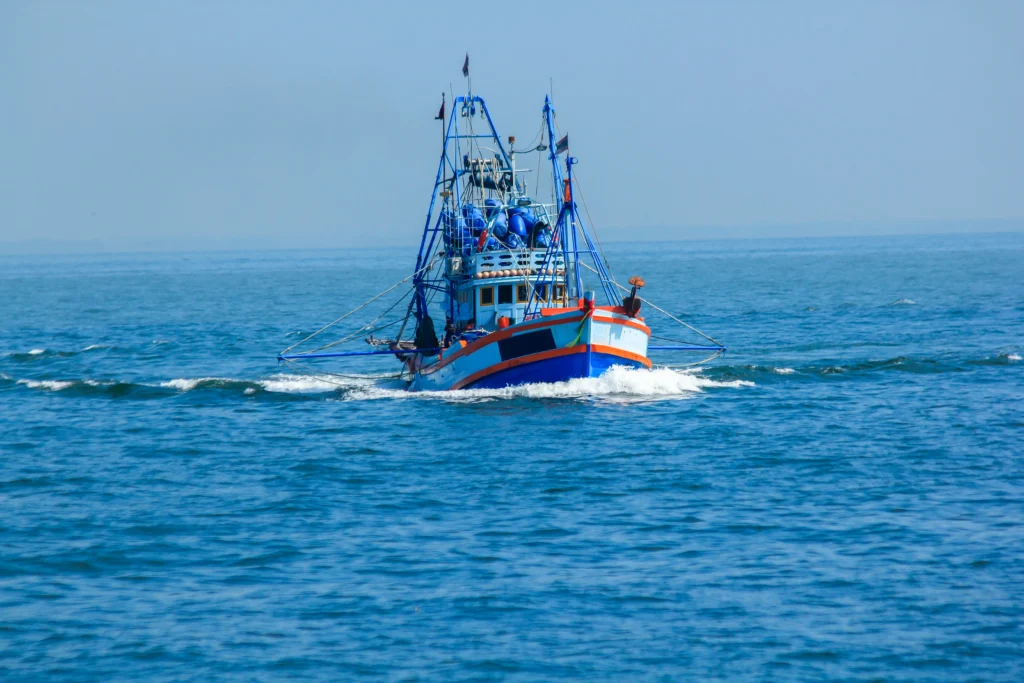
The Nature of Recreational Fishing Boats
Unlike high-speed watercraft or personal vessels used for tubing or cruising, recreational fishing boats operate differently. They often:
- Remain anchored in a single spot
- Drift slowly with the current or wind
- Use trolling motors for slow, quiet propulsion
- Have fishing lines extending far behind or beside the boat
- Feature equipment such as rod holders, outriggers, or downriggers that increase their footprint
This setup makes them vulnerable to wake, noise, and close-passing traffic. Understanding these differences helps highlight why it’s crucial to reduce speed near them.
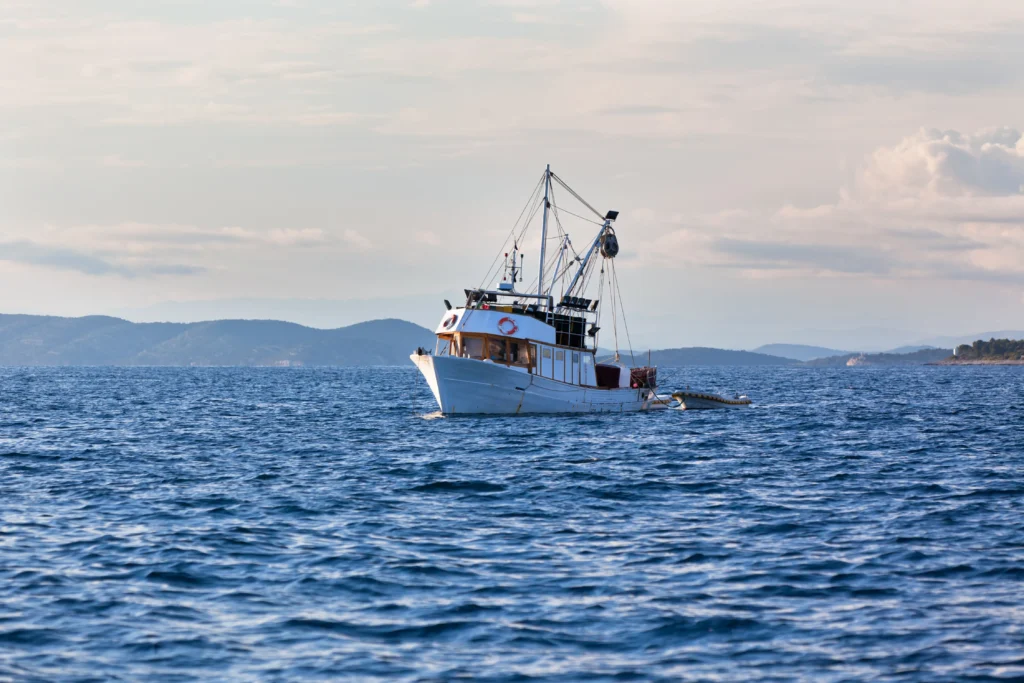
Safety First: Avoiding Accidents on the Water
One of the most immediate reasons to slow down when passing a fishing boat is to prevent accidents. A heavy wake from a larger or faster boat can:
- Rock the fishing vessel violently
- Knock anglers off balance
- Cause people or items to fall overboard
- Tip coolers or gear, leading to injury or property loss
Many recreational fishing boats are smaller and lighter, making them especially susceptible to even moderate wakes. Slowing down minimizes the chance of collision, tipping, or dangerous wave action.
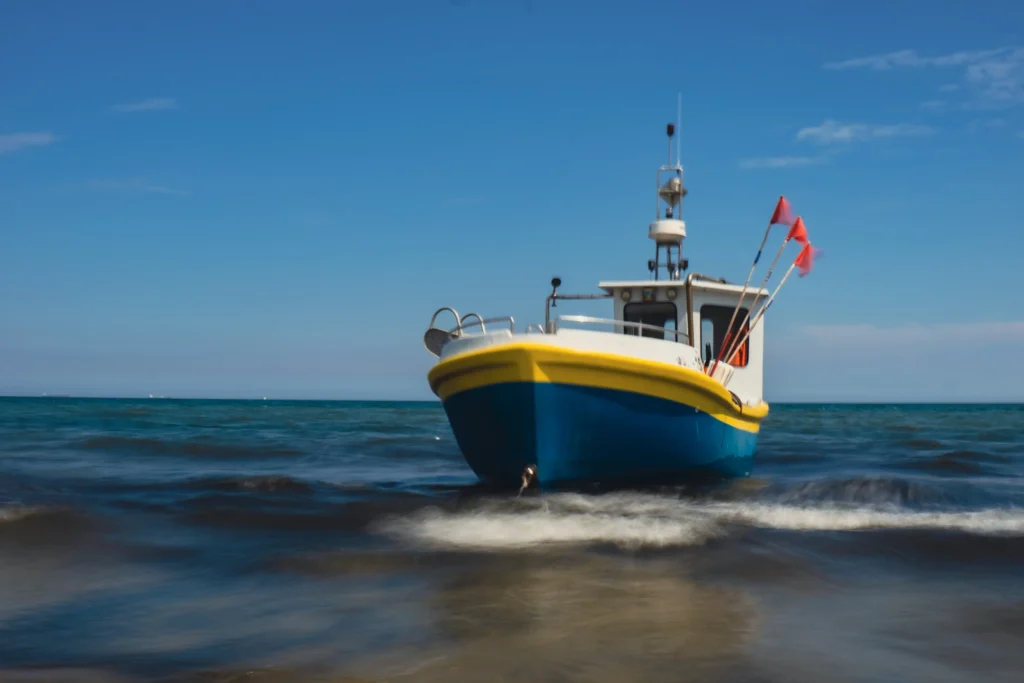
Avoiding Gear Damage and Financial Loss
Fishing equipment isn’t cheap. A single pass too close at speed can:
- Snap fishing lines or pull rods from holders
- Dislodge bait setups
- Disrupt sonar and fish finders mid-calibration
- Break delicate gear or cause entanglements
The angler’s time, patience, and money are all at risk when another boater flies past without consideration. When asked why should boaters slow down while passing recreational fishing boats, many experienced anglers will respond plainly: it protects our gear and time investment.
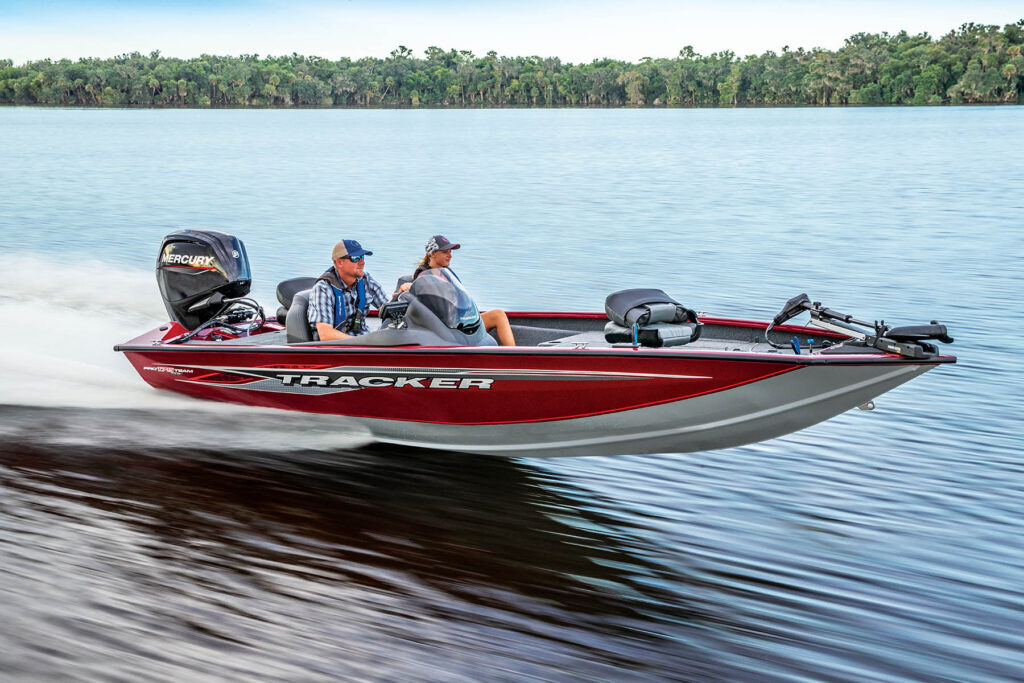
Legal Considerations and Boating Regulations
In many states and local jurisdictions, there are no-wake zones around anchored or slow-moving boats. Even where this isn’t explicitly enforced, federal navigation rules emphasize avoiding unnecessary disruption or hazard to any vessel.
Failure to reduce speed near a fishing boat can be interpreted as negligent operation, particularly if a wake causes damage or injury. Responsible boaters are expected to maintain a proper lookout and control their vessel’s wake—especially when navigating around others who are actively fishing.
You can explore legal specifics on this topic through the U.S. Coast Guard’s Navigation Rules, which define the “rules of the road” for inland and coastal waters.
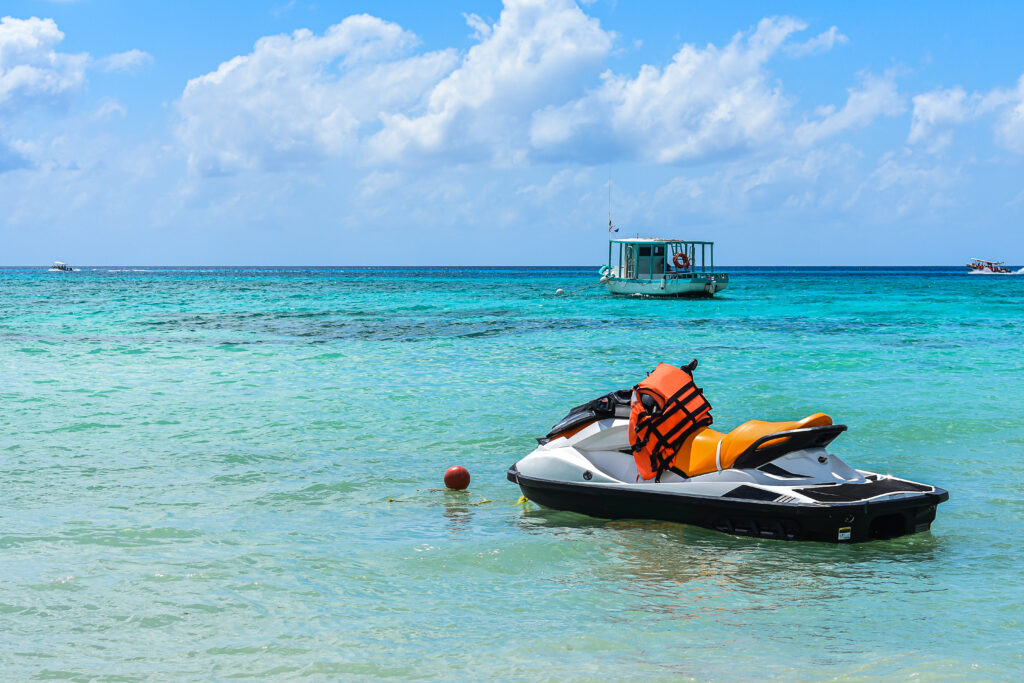
Respect for Fellow Boaters
Fishing is more than a hobby for many—it’s a lifestyle. Recreational anglers often spend early mornings or entire weekends seeking the perfect catch. Zooming past without slowing down disrespects their time and effort and can create unnecessary tension between boating communities.
Boating culture relies heavily on mutual respect. Whether it’s a pontoon enjoying a sunset or a bass angler on a focused drift, slowing down signals that you understand what others are doing and value their experience just as much as your own.
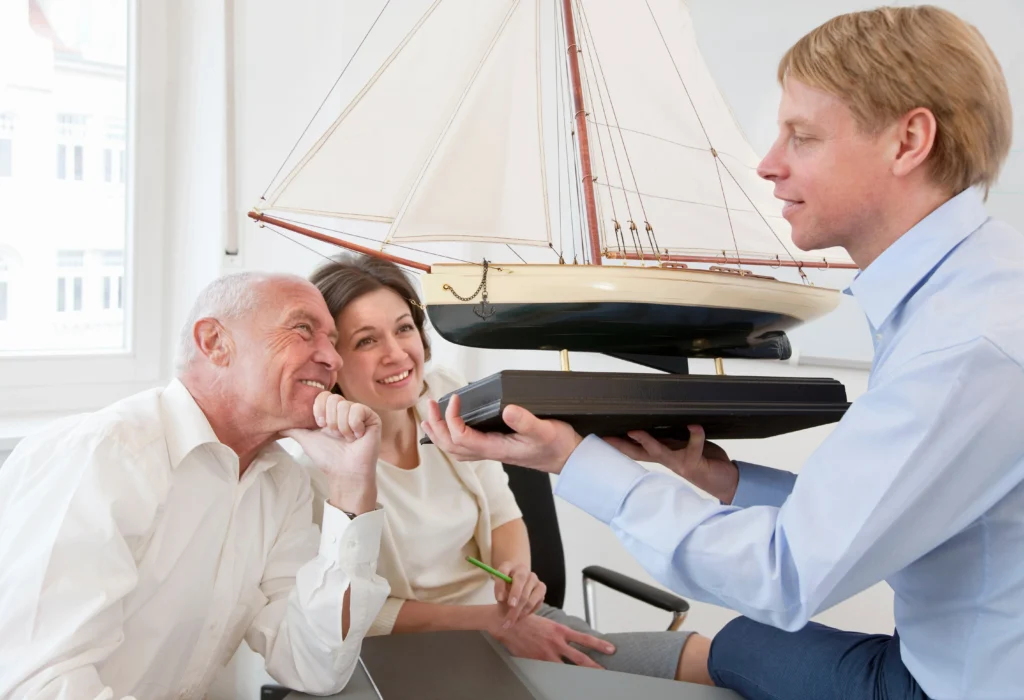
Better Situational Awareness
When you reduce speed around fishing boats, you’re not just being courteous—you’re giving yourself more time to observe the situation. This helps you:
- Spot fishing lines or gear in the water
- See if there are kids or pets onboard
- Notice which direction the boat is drifting
- Determine whether other vessels are also nearby
That additional visibility can help you avoid obstacles, communicate with the other boater, and pass in the safest possible location.
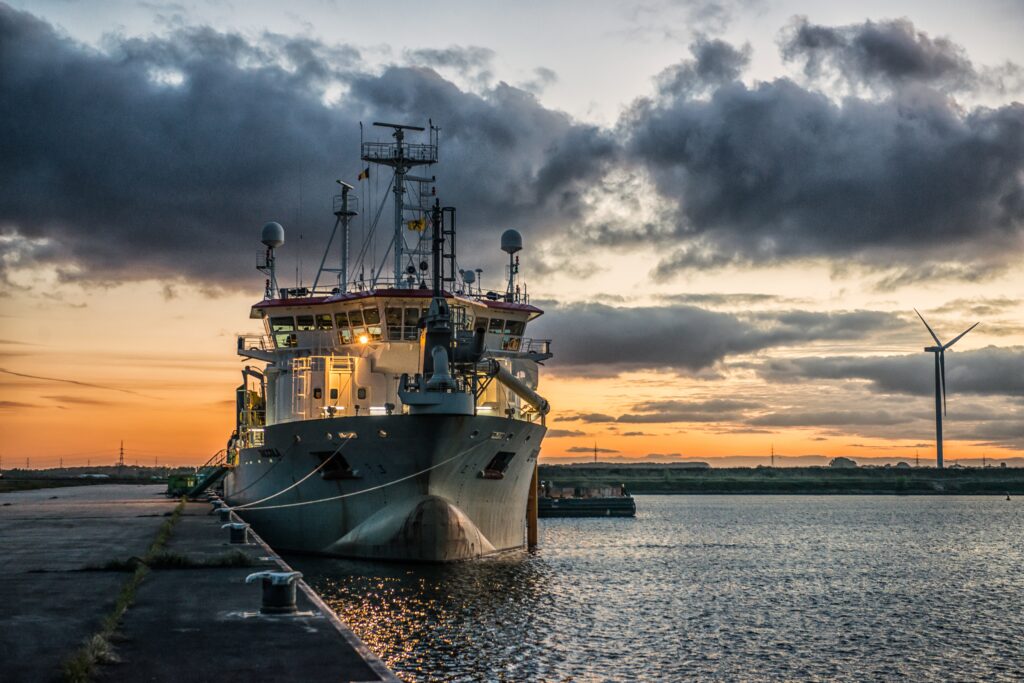
Slowing Down Improves Your Own Ride
It’s easy to think that slowing down only benefits the fishing boat. But it also makes your own boating experience more controlled and stress-free. In congested waters, slowing down allows you to:
- Avoid last-minute corrections
- Reduce fuel consumption
- Minimize wake that might affect other vessels nearby
- Enjoy better control when navigating tight channels or marina entrances
The water becomes a shared environment where every captain’s decision affects the rest of the boating community.
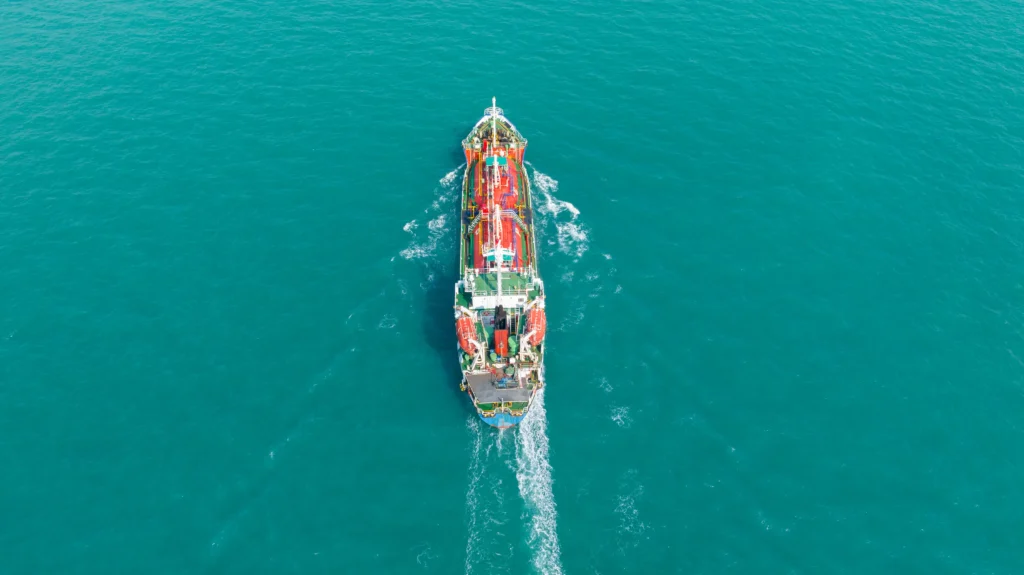
Local Regulations May Require It
Many popular fishing areas—especially near inlets, bridges, or designated fish habitats—have posted no-wake zones or signs specifically advising boaters to reduce speed around anglers. Ignoring these signs not only causes tension but could result in a fine.
In some states, there are additional seasonal rules during peak fishing periods that protect spawning zones or habitat restoration areas. In these places, maintaining minimal wake isn’t optional—it’s the law.
A Teachable Moment for New Boaters
If you have guests or new boaters aboard, slowing down near fishing boats sets a great example. It’s a teachable moment to show others:
- How to read the water and spot a fishing vessel
- The importance of wake control
- What responsible boating looks like in real-time
This type of mentorship helps build the next generation of thoughtful boaters who will carry those values forward.

Our Perspective on Safe Boating
At Float Finance, we believe boating is more than just owning a vessel—it’s a commitment to the culture, safety, and community of life on the water. Whether you’re trolling for tuna, relaxing at anchor, or just cruising on a Sunday afternoon, mutual respect keeps the experience enjoyable for everyone.
We’ve helped countless boaters secure the right vessel with financing that fits their lifestyle. If you’re in the market for a fishing boat—or want to understand the total cost of ownership—we offer helpful resources, calculators, and loan options on our boat financing page.
Our goal is to help you navigate not just the loan process, but also the shared responsibility that comes with owning and operating a boat.
Conclusion
So, why should boaters slow down while passing recreational fishing boats? Because it’s the right thing to do—for safety, courtesy, and legality. Fishing boats require calm waters and minimal disruption to function properly. Your wake could ruin a catch, damage gear, or even put someone at risk.
By easing off the throttle and keeping your distance, you’re not just avoiding problems—you’re contributing to a better, more respectful boating culture.
